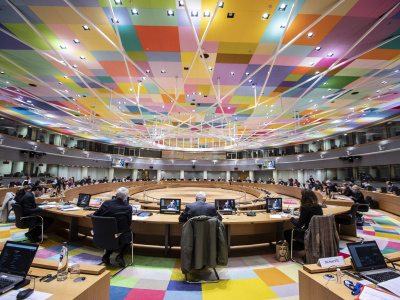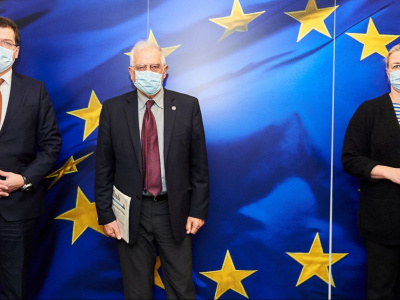
Tailored, multidimensional and coherent: Towards a renewed EU partnership with least developed countries
The impacts of the COVID-19 pandemic and the war in Ukraine are dramatically felt in the world’s poorest countries, stressing the need for a renewed EU partnership with the least developed countries. In this paper, Alexei Jones and San Bilal, with Katja Sergejeff, explore what is necessary for such a renewal.
The COVID-19 pandemic has dramatically affected life for citizens in the world’s poorest countries, wiping out years of progress in poverty reduction. Rising food, fuel and fertiliser prices caused by the war in Ukraine will further worsen the situation.
Summary
The COVID-19 pandemic has dramatically affected life for citizens in the world’s poorest countries, wiping out years of progress in poverty reduction. Rising food, fuel and fertiliser prices caused by the war in Ukraine will further worsen the situation. Recently, the fifth United Nations conference on the least developed countries (LDCs), and the adoption of the Doha Programme of Action for LDCs 2022-2031, highlighted the need for renewed and strengthened commitments by LDCs and their development partners to achieve a sustainable recovery and development.
Now fully equipped with its Global Europe instrument for international and development cooperation, the European Union (EU) is seeking to renew its partnerships in a more strategic, coherent and policy-driven approach. In this context, the French Presidency of the Council of the EU has initiated a reflection on how to renew the EU’s partnership with LDCs, which this paper aims to feed into.
Rather than defining a specific EU policy that is targeted at LDCs per se, there is a need for a more tailored approach that better addresses their specific needs and overlapping vulnerabilities – especially in the area of development cooperation and development finance. These tailored policies should be accompanied by measures in other policy domains which are crucial for LDCs, notably in trade, climate and food security. In that regard, enhancing policy coherence for development is an essential principle for a renewed cooperation and partnership with LDCs.






